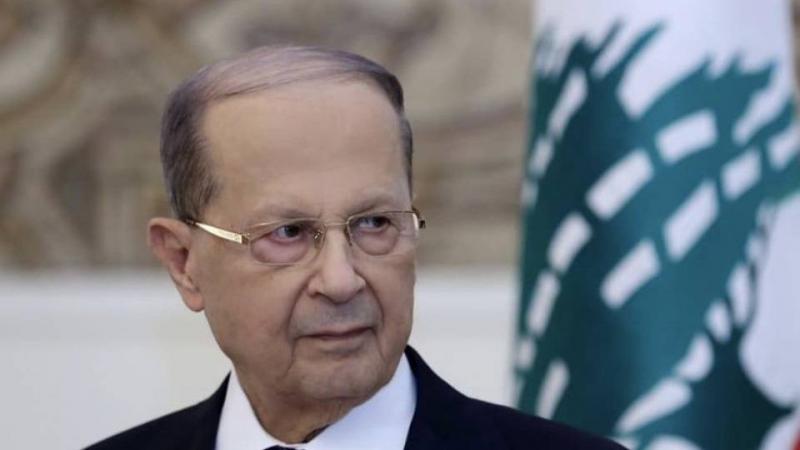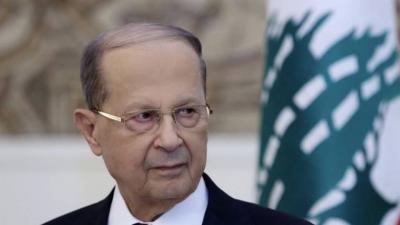It is still unclear whether the positive atmosphere signaling an imminent government breakthrough is genuine or merely a maneuver. Likewise, what has prompted both sides to compromise and meet halfway remains uncertain. The disputes that hindered the formation of the government four months ago are still present, and during this period, Hezbollah has made extensive efforts without succeeding in persuading them to proceed with governmental matters. However, there is a general consensus that a resolution regarding the government is approaching, based on the principle that "the wolf does not perish, nor do the sheep die."
In short, recent consultations have shown that the prospects for reviving the current government have increased significantly. Both sides now recognize the necessity of forming a government and have returned to reality. Time is pressing, the end of the term is near, and it is in their interest to form a government or revitalize the current one with minor additions.
The narrative suggests that Prime Minister Najib Mikati finally heeded the advice of a politically adept friend indicating that stubbornness with the President would be unhelpful, as would political jibes siding with one politician or another, creating the impression of targeting Christians. Mikati realized that despite all the pressures, Aoun did not yield to governmental issues and had repeatedly refused to meet with him until Mikati congratulated him on the Feast of Our Lady and requested a visit, which led to the continued finger-pointing game between the two presidents until Mikati, with the friend's mediation, became convinced that it was in his best interest to form a government and that concessions were necessary, as Aoun would not relinquish easily.
Previously, Mikati had refused to support Aoun in his final days, with Walid Jumblatt backing him, preferring obstruction over granting Aoun governmental privileges. Various factors led Mikati to conclude that his government would not suffice to fill the presidential vacancy, while Hezbollah no longer benefited from maintaining the unstable status quo as the term approached its end and the presidential void became inevitable.
Hezbollah played a facilitative role between Aoun and Mikati to help form the government, as both parties needed a way down from their unrealistic demands. In collaboration with Speaker Nabih Berri, Hezbollah offered a solution that allowed them to retreat thoughtfully: Aoun dropped his demand to expand the government, while Mikati accepted to maintain the existing governmental balances.
Mediator sources indicate that discussions about forming the government have become calmer than before, anticipating that Mikati's return might crystallize a positive agreement with Aoun on a government lineup featuring new faces. It appears that an agreement was reached on the mechanism for selecting new ministers between Aoun and Mikati. The matter of the six state ministers, insisted upon by Free Patriotic Movement leader Gebran Bassil, has been set aside, in exchange for Mikati not altering the current governmental balances, leading to the replacement of current ministers through mutual consultation and agreement between Aoun and Mikati.
A replacement for Minister Issam Sharafeddine is to be selected based on a personality that does not provoke Walid Jumblatt (the name Ramzi Suleiman has been circulated), and Aoun will coordinate with the Akkar MPs to nominate a minister from the region. During consultations, Hezbollah advised Mikati that maintaining the government in a caretaker capacity would cast doubt on its legitimacy and lead to division while the country would rather avoid further constitutional disputes. Thus, a fundamental government should be formed instead of an interim one without altering the balances.
In mediation with Aoun and Bassil, discussions focused on the impossibility of adding six new ministers to the government, resulting in the concession of the blocking third and an agreement for minister selection to be consensual between the two presidents—choosing non-provocative figures. Until Mikati returns, it remains unclear whether this optimism will continue successfully and whether the changes will include four ministers, including Finance Minister Youssef Khalil and Tourism Minister Walid Nassar, as well as Ministers Amin Salameh and Sharafeddine, or will be limited to the last two.
Reports suggest that the disgruntled Finance Minister, fed up with political maneuvering against him in Parliament, met with Speaker Nabih Berri, agreeing to remain in his position due to time constraints. Sources indicate that the decision against changing Khalil stems from a desire to avoid disrupting Shiite representation in the government, especially with Hezbollah's desire to appoint Director General of General Security Major General Abbas Ibrahim before his term ends next February. Additionally, discussions about changing Minister Nagla Riyashi were raised, but no agreement has been reached on a proposed Christian minister's name or which bloc they would belong to. The crux lies in the agreement on details: will Bassil's condition for increasing his share include a Christian minister in the government in exchange for Mikati's participation in naming a replacement for Sharafeddine and Salameh? Will the changes extend to four ministers instead of just two?




